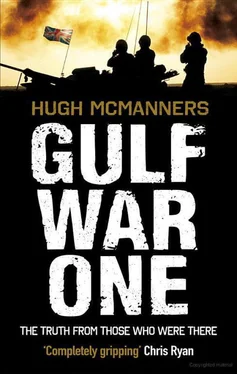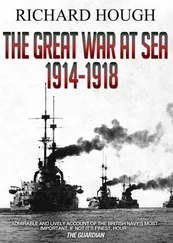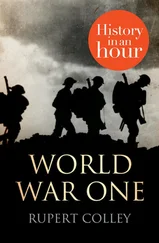Major General Alexander Harley
Assistant Chief of Defence Staff (Overseas), Ministry of Defence, Whitehall
The Chiefs of Staff were terribly bothered about where the crisis would be handled: from the Royal Navy base at Northwood or RAF Strike Command at High Wycombe, the only two places with command bunkers. They also argued for a long time, very privately, over who was to be the Joint Force Commander, and the chain of command. Saddam invaded Kuwait in August, but these discussions continued until towards the end of the year.
The Chiefs of Staff had to decide what to do, send plans over to the Cabinet Office for comment, then instruct the Joint Commander to carry them out. But until the Chiefs of Staff decided the chain of command, the rest of the process couldn’t take place. I was designated as the MoD’s Deputy Director of Joint Operations.
MoD crisis management operated from offices at one end of the fifth floor. The navy had an operations room further down the corridor, and the army set one up in the Defence Crisis Centre complex, a set of rooms flattened and opened out. The intelligence staff were constantly walking to and fro, across Horse Guards Avenue, and, as this was the days before emails, they were carrying highly classified documents, photos and so on. There were also loads and loads of often very long telegrams, and constant telephone calls.
Major David Potts
SO2 Army Logistics, Quartermaster General’s Department
Many of the grown-ups were in Hong Kong trying to give it back to the Chinese, so didn’t get back for a week or more. I came into work that morning; with the holidays, few others were there. We went straight into a very busy planning cycle, quickly discovering that many people in the MoD didn’t know what they were paid to know, while others were seriously fossilised in the Cold War mentality, saying we couldn’t possibly go to Kuwait as we haven’t got air-conditioned tanks, and it will cost too much anyway.
My job was to muster army resources. If pinstripe-suit chaps with broad braces from Military Operations said we needed to send an armoured battle group, then us five would work out a logistic package to make this feasible.
We immediately worked through all the options; from the UK sending only logistics units, to sending light troops with helicopters, but also the notion that we might actually send armoured forces. This is where the rubber really did hit the road, as our tank was Challenger, of which, thanks to malfunctioning and lack of spares, only twenty-two per cent worked. Our armoured forces were incapable of fighting the Russians in northern Europe, let alone being shipped off to the hostile desert environment to fight.
Hashim Ali
Iraq freedom fighter
In 1990, after invading Kuwait, the Ba’athists believed Iraq had achieved its dream of pan-Arab leadership. With Kuwait’s oil wealth giving them the largest oil reserves in the world, they thought Iraq would become a powerful nation, and be given the sixth seat on the UN Security Council. This was all a dream – which is easy to imagine when you are a person sitting at home; but when you are leading a country and you have such dreams, it leads to the path of death.
Major David Potts
SO2 Army Logistics, Quartermaster General’s Department,
We’d work until the early hours of the morning, and then at 7am Roland Notley came in to be briefed, along with General Jones. When they went off to talk to the grown-ups, we went down for breakfast, then returned to be told what problems we had to work on for the next twenty-four hours. By the time we’d answered the latest exam question, it was too late to go back to Fulham, so I’d sleep on Roland Notley’s floor for a couple of hours.
We had no IT, and wrote everything out in longhand, then girls in the outer office typed it all. And until later on, it was just the three of us, with nobody else brought in to help.
Major General Alexander Harley
Assistant Chief of Defence Staff (Overseas) and Deputy Director of Joint Operations, Ministry of Defence, Whitehall
Within Whitehall, the FCO, Cabinet Office and so on are very close together, so meetings can be set up pretty quickly, usually around the Cabinet Office table. All the key players know each other, so determining what you’re going to do on a national basis can be done very quickly.
Terrorism was, however, quite a scare for us, particularly early on. Saddam Hussein threatened a major terror campaign, especially against Britain and the USA, and there were concerns the IRA might also get involved. So through the Cabinet Office, we took measures like deporting all Iraqi students. Later on, when we sent ships through the Suez Canal, we provided Royal Navy escorts.
Major David Potts
SO2 Army Logistics, Quartermaster General’s Department
Roland Notley had right from the start delegated his authority to us, allowing us to take decisions. He’d told me very firmly, ‘Do not let anybody make you doubt whether we can take the Challenger to war in the desert. In 1967 I was in Kuwait in a bloody Centurion tank. Our forefathers fought in the desert in Crusader, Cromwell and Sherman tanks. Don’t let anyone tell you we can’t go to the desert in Challenger. We bloody well can. You don’t need air conditioning or anything else. You just go there, and do it.’ I’d replied, ‘Got it, sir.’
There were so many people in senior positions, including senior tank officers, who said how totally impossible it would be to take this crap tank to the desert and fight a war in it. In retrospect, they were probably right.
Quite early on, when all our senior people were away on a big study-day conference, Tom King’s office wanted to talk logistics. I went to this meeting, with the Master General of the Ordnance, and other terribly grand people were sitting around this big table, and someone slightly more senior than me from the procurement executive who knew what he was talking about. I was there as QMG’s logistic expert. Tom King wanted to know how we could send an armoured brigade with a tank that was only twenty-two per cent reliable. He asked who would talk about the logistics, which I realised was me.
I said in order to support a single armoured brigade, we’d have to put the logistics of a whole division behind it. We’d done a lot of work on this, calculating that we’d also have to strip out all the spares and logistics from the entire British Army of the Rhine. If we managed it carefully, I told him we reckoned the Challenger would be OK. The procurement executive guy then told us what could be done within the timescale to improve the tank.
Tom King then turned to a senior chap from Vickers and said, ‘Well, here we are. The nation’s thinking of sending an armoured brigade out to the Gulf, and our biggest problem is whether this bloody tank you’ve sold us is going to work…?’ But the man from Vickers was very good, told us what was needed and their plan for a modular upgrade that would sort it all out.
Unfortunately, his timescale wouldn’t get our tanks out to the Gulf in time.
The Rt Hon Tom King
UK Secretary of State for Defence
I expressed my concerns about Challenger’s reliability to the chairman of Vickers. Various improvements should have been made to all sorts of equipment, not just Challenger, but the Cold War had gone on for so long, becoming less and less urgent as time went on, so these improvements had no real defence priority, so were never made. But when suddenly faced with a serious military challenge, a very serious game of catch-up was required. Fitting Chobham armour to the Challengers was part of this, plus various new technologies like satellite navigation, and specific desert requirements for Challenger, for example sand filters and larger fuel tanks.
Читать дальше












